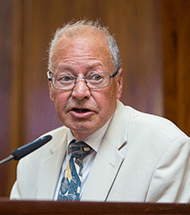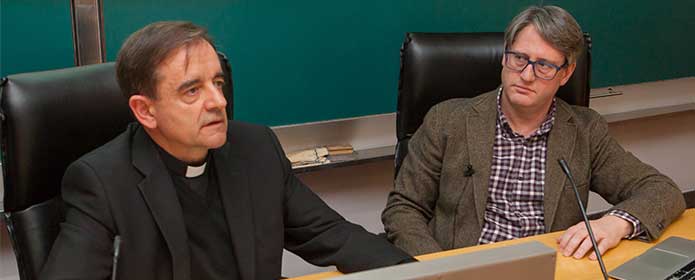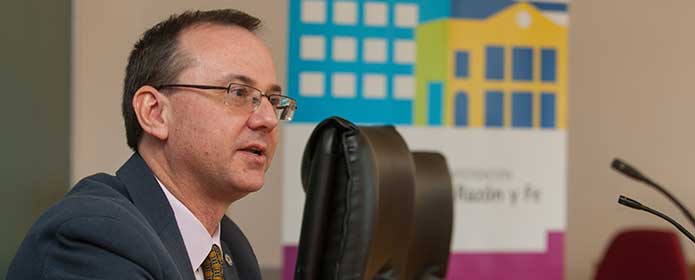An expert suggests combining the perspectives of science and religion to address major contemporary ethical issues with confidence.
The Professor Emeritus of the University of Oxford, John Hedley Brooke, gave the V Mariano Artigas Memorial Lecture at the University of Navarra.

"We must look for ways in which the resources of science and religion can be combined to address major ethical problems". This was one of the proposals put forward by John Hedley Brooke, Professor of History of Science and Professor Emeritus of the University of Oxford, in his visit to the University of Navarra, where he delivered the 5th Mariano Artigas Memorial Lecture.
During the session, entitled "Fighting against religion in the name of science. Has the battle been won?", Professor Brooke addressed three questions that were of particular interest to Professor Artigas: in which Degree there is or is not an inherent conflict between religious faith and the methods of science; the relative importance of science in the processes of secularization; and the complexity of the interrelationships between scientific thought and religious beliefs.
He also used historical examples to illustrate his thesis of the complexity of the relationship between science and religion, such as climate change and environmental protection, the prospect of the possibility of life on other worlds, or the existence of robots and machines with the ability to learn.
On the latter question he posed "what if many of our life choices depended on machines that know us better than we know ourselves." He pointed out that faster computers manage to surpass much of what humans can do and recalled Oxford philosopher Nick Bostrom's statement about the possible arrival of superintelligence: "We humans are like little children playing with a bomb," remarking on the mismatch between the power of our toy and the immaturity of our behavior.
The event was presided over by María Iraburu, Vice President of facultyThe Mariano Artigas Memorial Lecture, now in its fifth edition, was presided over by the Vice President of the faculty, María Iraburu. She was accompanied at the table by the director of the group 'Science, Reason and Faith' (CRYF), Javier Sánchez-Cañizares, and the secretary of this group, Rubén Herce. Both are professors at the Ecclesiastical School of Philosophy.
The group holds the Memorial Lectures every two years in honor of its founder, Mariano Artigas, with the participation of personalities who have made relevant contributions in the context of the dialogue between science and faith. Since the beginning of the lessons have participated: in 2011, William Shea, professor of the Chair Galilean of History of Science at the University of Padua; in 2013, Karl Giberson, physicist, specialist in the discussion creationism-evolutionism; in 2015, Giuseppe Tanzella-Nitti, professor of theology at the Pontifical University of the Holy Cross in Rome; and in 2017, Juan Arana, academic and Full Professor of Philosophy of the University of Seville.


